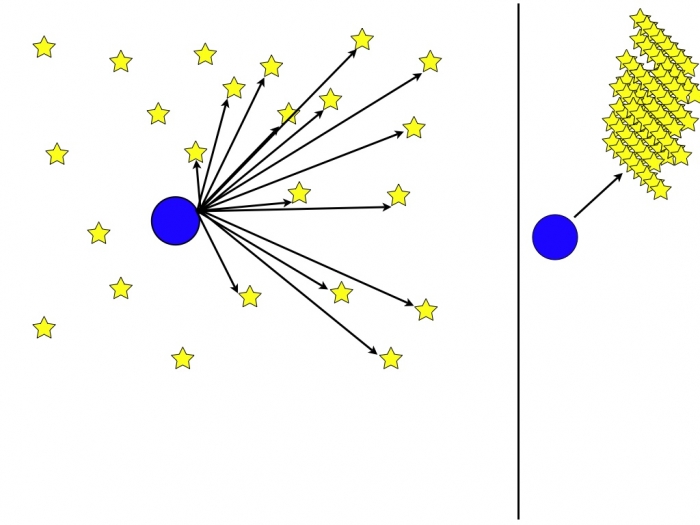
noun Astronomy.
- the paradox that if the universe consisted of an infinite number of stars equally distributed through space, then every line of sight would come from a star and the night sky would glow uniformly, which is observationally not true.
“if stars are uniformly distributed through the sky, their number should counterbalance their faintness and the night sky should be as bright as the day;” named for German astronomer H.W.M. Olbers (1758-1840), who propounded it in 1826.
 Liberal Dictionary English Dictionary
Liberal Dictionary English Dictionary